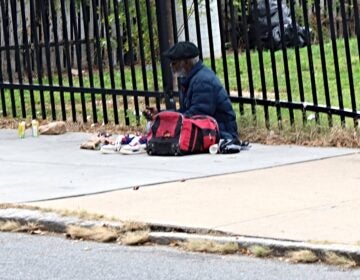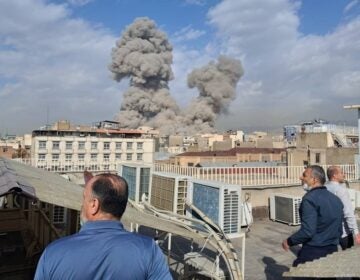Widener international law professor eyewitness to Egyptian history
As a college student Andrew Stauss watched history in the Philippines when Ferdinand Marco’s regime came to an end in a non-violent populist uprising. He never expected, but is excited to see the beginnings of the change first hand again. This time in Egypt.
Strauss is Distinguished Professor of Law at Widener University with a focus on International Law. In mid-January he was just another tourist thinking he was going to view Egyptian history of 5,000 years ago. He says when he arrived on January 20th there was some conversation about upcoming rallies. He says that others were keeping an eye on demonstrations in Tunisia, but it was business as usual.
When the day of rage demonstration took place on January 28th he was out of Cairo. When he returned, the mood had changed. He was told to stay in his hotel where he could only watch scattered news coverage of what was going on. He was supposed to leave the following Monday. He instead left a day earlier.
Strauss says there is a connection to Egyptian President Hosni Mubarak leaving his position of power and the other power transitions in recent history such as the Philippines, Indonesia, Latin America, and the 1989 crumbling of the Soviet Union and the Eastern European countries. He says the common theme has to do with the military and sharing power.
“The military in Egypt has been the most powerful institution in the country by far,” Strauss said. “They’ve handled themselves well from a public relations standpoint. They still have a lot of legitimacy with the Egyptian people.
The role of the military is a concern of Senator Chris Coons (D-Del.) as well. “Though important to preserve order and ensure the safety of the Egyptian people during this transition, I urge the military to exercise restraint and work with transitional leaders to lay the foundation for credible elections that will lead to a truly representative government. Egypt’s transitional leaders and military should move to lift the emergency law, ensure civil and human rights, and continue to adhere to international obligations for peace in the region and security on the border with Gaza.”
Strauss says most Egyptians are realistic about what they expect will happen next. He says they should be able to “integrate Islam with democracy.” “I think Turkey is a great model,” he says. “There’s an Islamic government in Turkey that has been brought into a secular system, and I think a lot of Egyptians aspire to that kind of social order.”
Strauss points out the United States should be proactive and support the people who have put together the demonstrations that brought about change. “It’s the right thing to do from a moral point of view,” he says. He says the U.S. has been more reactionary so far and it has worked in our favor, but Strauss says where the U.S. can use its influence is by telling the military that if don’t include all groups in a power sharing role then this country won’t support them.
WHYY is your source for fact-based, in-depth journalism and information. As a nonprofit organization, we rely on financial support from readers like you. Please give today.




